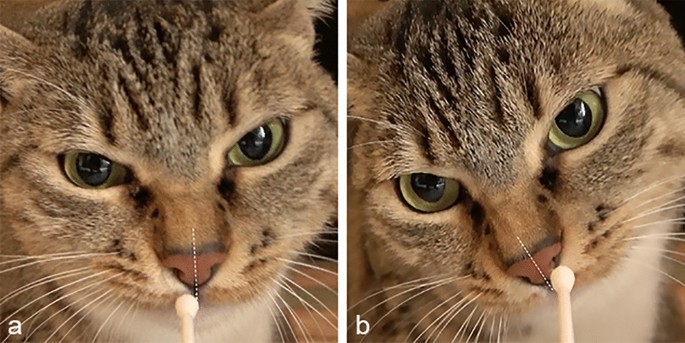Horses are sensitive animals. They respond to human emotions.
But how do horses react to human crying? Horses, with their keen senses, can detect subtle changes in their environment. This includes the emotions of the humans around them. When a person cries, a horse may become curious or concerned.
They might nuzzle, stand close, or even mimic some of the person’s distress signals. Understanding these reactions helps us see the deep bond between horses and humans. This connection goes beyond simple companionship. It taps into a shared experience of emotions and comfort. Let’s explore how these gentle giants respond when they see us in tears.
Horses And Human Emotions
Horses and humans share a unique emotional connection. This bond has deep roots and shows in many ways. Horses can sense and react to human emotions. They often provide comfort when we need it most. This reaction is especially noticeable when humans cry. Let’s explore this fascinating relationship.
Historical Bond
Horses and humans have been together for thousands of years. They worked side by side in many tasks. From farming to traveling, horses have always been there. This long history created a strong bond. Horses learned to understand human behaviors and emotions. They became more than just animals; they became companions.
Communication Methods
Horses use body language to communicate. They watch our movements and facial expressions. When a person cries, their body language changes. Horses notice these changes quickly. They might come closer, nuzzle, or even rest their head on the person. These actions show empathy and understanding.
Horses also respond to the tone of our voice. A crying voice sounds different. Horses can pick up on these changes. They react by offering comfort. This shows their ability to sense human emotions deeply.
Understanding Horse Behavior
Horses are highly perceptive animals with strong emotional intelligence. Understanding their behavior helps us connect better. This connection becomes crucial when humans display strong emotions, such as crying. Horses often respond to human emotions in unique ways. Let’s delve into their reactions through a closer look at their instinctual reactions and social dynamics.
Instinctual Reactions
Horses possess strong instincts due to their prey-animal nature. They rely on these instincts to navigate their environment safely. When they see a human crying, their instinctual reaction is to assess the situation.
- Heightened Awareness: Horses become more alert. They will watch the crying person closely.
- Body Language: Their ears may point forward. They might also shift their weight or move closer.
- Calm Presence: Often, horses remain calm. They try to understand the source of distress.
These instinctual reactions show their innate desire to comprehend their surroundings. This helps them stay safe and connected.
Social Dynamics
Horses are social animals. They live in herds and form strong bonds. Their social dynamics play a key role in how they react to human crying.
- Empathy: Horses can sense emotions. They often mirror these feelings. They may nuzzle or gently touch the crying person.
- Protective Instincts: In a herd, horses protect each other. This instinct extends to their human companions. They may stand closer to offer comfort.
- Non-verbal Communication: Horses use body language to communicate. They may use soft eyes and slow movements to reassure a distressed human.
Their social dynamics highlight their ability to form deep emotional connections. This makes them responsive to human emotions.
Horses Sensing Emotions
Horses have a unique ability to sense human emotions. They can understand and react to our feelings. This makes them special companions. Their sensitivity to our emotions is profound.
Body Language
Horses observe our body language closely. They notice our posture, movements, and facial expressions. If you are crying, your body might be tense or slumped. A horse can pick up on these subtle cues.
They may come closer to offer comfort. Some horses nuzzle or gently touch their human friends. This shows their empathy and desire to help.
Vocal Cues
Horses are also sensitive to vocal cues. They can recognize changes in our voice. When you cry, your voice might be shaky or soft. Horses listen carefully to these sounds.
They may respond with gentle nickers or soft whinnies. These sounds can be soothing and comforting. Horses use their voice to connect with humans emotionally.
| Emotion | Horse’s Reaction |
|---|---|
| Crying | Nuzzling, gentle touch, soft whinnies |
| Happy | Playful behavior, lively movements |
Horses sensing emotions is not just about body language and vocal cues. They have a deep bond with humans. This bond allows them to feel and react to our emotions naturally.

Credit: www.reddit.com
Horses’ Reactions To Crying
Horses are sensitive animals. They often respond to human emotions. When humans cry, horses can react in various ways. These responses can be fascinating to observe. Let’s explore how horses react to crying.
Behavioral Changes
Horses may show behavioral changes when they see a person crying. They might become more alert. They may move closer to the person. Some horses nudge or lick the person to offer comfort. They often use their body language to show empathy. Horses can sense sadness and may try to help.
Physical Responses
Horses also display physical responses to human crying. Their ears might twitch. Their eyes may become more focused. They might lower their heads as a sign of submission. Some horses even sigh, which indicates they understand something is wrong. These physical signs show their deep connection with humans.
Scientific Studies
Scientific studies show that horses are very sensitive to human emotions. They can even respond to human crying. Researchers have conducted various studies to understand how horses react to human tears. Let’s delve into some research findings and case studies that highlight these interactions.
Research Findings
Studies reveal that horses can recognize human emotions through facial expressions and vocal sounds. They have a keen sense of empathy and can distinguish between different emotional states. Research has shown that:
- Horses exhibit stress when they see humans crying.
- They often approach crying humans with caution.
- Horses can mirror human emotions.
In one study, researchers observed horses interacting with humans displaying various emotional states. They found that horses could sense sadness and respond accordingly. This demonstrates the deep bond between horses and humans.
Case Studies
Several case studies provide insight into how horses react to human crying. One notable case involved a horse named Bella. Bella’s owner was going through a difficult time and often cried in the stable. Bella would nuzzle her owner and stay close, providing comfort.
Another case study focused on a therapy horse named Star. Star was trained to help children with emotional difficulties. During sessions, Star would become more attentive and gentle when children cried, showcasing the horse’s sensitivity to human emotions.
These case studies highlight the profound connection between humans and horses. They demonstrate how horses can offer emotional support and comfort in times of distress.

Credit: www.nature.com
Emotional Connections
Horses are sensitive creatures. They often form deep emotional connections with humans. This bond allows them to pick up on our feelings. When humans cry, horses can sense the sadness. They respond in unique and touching ways.
Bonding Experiences
Spending time with horses builds trust. Regular interaction helps create a strong bond. Grooming, feeding, and riding are bonding activities. These shared experiences make horses more attuned to human emotions. A horse that trusts you will notice your moods.
Mutual Comfort
Horses can offer comfort when you are upset. They might nuzzle, stay close, or even rest their head on you. This behavior shows they care. It also provides comfort to the human. The simple presence of a horse can be calming. This mutual comfort strengthens the emotional connection.
Training And Empathy
Training and empathy play a significant role in how horses react to human emotions. Horses are intuitive animals that can sense and respond to human feelings. By understanding and training them, we can foster a strong bond based on trust and empathy.
Developing Trust
Building trust with a horse takes time and patience. Horses need to feel safe and secure around humans. Consistent training helps create a bond of trust. Gentle handling and positive reinforcement encourage a horse to trust its owner. This trust allows the horse to feel comfortable and more likely to respond to human emotions.
Spending quality time with your horse is essential. Regular grooming and calm interactions help build trust. A horse that trusts its owner is more responsive to their emotions. Trust is the foundation of any strong relationship with a horse.
Recognizing Emotions
Horses are highly perceptive animals. They can recognize human emotions through body language and voice tones. A crying human displays clear emotional signals that a horse can pick up on. Horses may approach a crying person with curiosity and concern.
Training helps a horse better understand and respond to these emotions. Horses learn to associate certain human behaviors with specific emotions. Over time, they become more attuned to recognizing and reacting to these signals.
Empathy is a crucial part of a horse’s response. Horses often mirror the emotions of those around them. This mirroring helps them connect with humans on a deeper level. A horse that senses sadness or distress may offer comfort by staying close or nuzzling the person.
Practical Implications
Understanding how horses react to human crying can have practical implications. These insights can be useful in therapy, training, and daily interactions.
Therapeutic Uses
Horses can be used in emotional therapy. They can sense human emotions. Their reactions to crying can provide comfort. This makes them valuable in equine-assisted therapy.
| Benefits | Details |
|---|---|
| Emotional Support | Horses provide a calming presence. |
| Non-judgmental | Horses don’t judge human emotions. |
| Connection | Developing a bond with the horse. |
Everyday Interactions
Understanding horse behavior helps in daily life. Horses reacting to crying can strengthen the human-animal bond. This bond is essential for horse owners and caretakers.
- Building Trust: Horses trust humans more when they respond to emotions.
- Training: Horses trained to respond to emotions can be easier to handle.
- Safety: Knowing horse reactions can prevent accidents.
In daily interactions, crying can be a tool. It can help in creating stronger connections with horses. This understanding benefits both the horse and the human.

Credit: m.facebook.com
Frequently Asked Questions
Do Horses Understand Human Emotions?
Horses can sense human emotions through body language and tone. They often respond to changes in human behavior.
How Do Horses React To Crying?
Horses may become curious or concerned when a person cries. They might approach and offer comfort.
Can Horses Offer Comfort To Humans?
Yes, horses often try to comfort humans. They may nuzzle or stay close to provide support.
Why Do Horses React To Human Crying?
Horses are sensitive animals. They can detect emotional changes and react to them instinctively.
Conclusion
Horses sense human emotions deeply. They comfort us when we cry. Their empathy strengthens bonds. This special connection benefits both humans and horses. Understanding this bond enhances our relationship with these gentle creatures. Keep observing your horse’s reactions. You’ll learn more about their feelings.
This knowledge helps in training and care. Horses and humans share a unique, emotional bond. Nurture it with love and respect.




